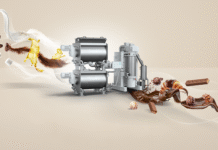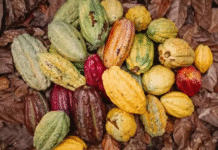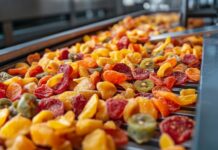Dabur India mitigated the impact of macro-economic headwinds and a prolonged slowdown to deliver a 4.1% growth in consolidated revenue and an improvement of 90 bps in operating margin during the second quarter of 2019-20 financial year. Dabur India posted consolidated revenue of Rs 2,212 crore in Q2 of 2019-20, up from Rs 2,125 crore a year ago.
According to the company statement, the consolidated net profit grew 7% to end the quarter at Rs 403 crore as against Rs 377 crore a year earlier. The net profit was impacted by one-time impairment in the value of investments to the tune of Rs 40 crore. Excluding this impairment, the net profit for Q2 of 2019-20 marked a 15.1% growth year-on-year. The domestic FMCG business reported an underlying volume growth of 4.8% during the quarter. The domestic FMCG volume growth for the quarter, excluding the food business, stood at 7.4%.
Speaking about this, Mohit Malhotra, chief executive officer, Dabur India, said, “The domestic business continues to face heavy headwinds in the form of a sustained slowdown in demand, aggravated by the liquidity crunch in the market. Despite a sharp fall in growth rates in most consumer products segments, Dabur continues to focus on brand-building across our key categories while leveraging our strong herbal and ayurvedic heritage. We also continued to move forward on our distribution expansion strategy in rural India. During the second quarter of 2019-20, we have expanded our rural footprint to over 51,000 villages, up from 48,000 villages in June 2019. Riding on this expansion, rural demand continues to grow ahead of urban demand for Dabur.”
“While we continue to face macroeconomic headwinds, Dabur has efficiently managed the risks and challenges to deliver a steady performance. The increased investment behind our brands and in innovation is paying off with Dabur brands growing ahead of the categories and gaining market share, despite the tough operating conditions. Our market share in the toothpaste category increased by 66 basis points year-on-year. Dabur reported a 30 bps gain in market share in the Hair Oil segment, while our Shampoo category market share grew by 65 bps. Despite a sharp 7% decline in the Juice category, Dabur’s market share rose to the highest ever 60.5%, an increase of 420 bps year-on-year. Our focus on strengthening our master brands, enhancing our rural reach coupled with our focus on operating efficiencies and judicious cost management will support sustained profitable growth in the future,” Malhotra added.
Category growths
“Healthcare continues to be the outperformer for Dabur, which is in line with our strategy of focusing on the Consumer Health categories and investing disproportionately behind our Power Brands, a majority of them being in the Healthcare space,” Malhotra said.
The company stated that the Health Supplements business for Dabur reported a 14.4% growth during Q2 of 2019-20, led by a strong demand for its flagship health supplements brand Dabur Chyawanprash. The Digestives category ended Q2 with a 10.2% growth during the quarter, while the Ayurvedic Ethicals business grew by 7.2%. Dabur’s Shampoo business, on the back of the relaunch of its Vatika Shampoo, grew by 12% during Q2. The Home Care business sales were up 7%, riding on strong demand for our mosquito repellant brand Odomos. The Toothpaste category grew by nearly 5% during the quarter with the flagship brand Dabur Red Paste reporting a nearly 10% growth.
IndiFoodBev — authentic, impactful and influential
An English-language food and beverage processing and packaging industry B2B platform in print and web, IndiFoodBev is in its third year of publication. It is said that the Indian food and beverage industries represent approximately US$ 900 billion in revenues which implies more than 20% of the country’s GDP. Eliminating the wastage on the farmside can help to deliver more protein to a higher number of the population apart from generating sizable exports. The savings in soil, seeds, water, fertilizer, energy and ultimately food and nutrition could be the most immense contribution that country is poised to make to the moderation of climate change.
To improve your marketing and grow sales to the food and beverage processing and packaging industry, talk to us. Our research and consulting company IppStar [www.ippstar.org] can assess your potential and addressable markets in light of the competition. We can discuss marketing, communication, and sales strategies for market entry and growth.
Suppliers and service providers with a strategy and budget for targeted marketing can discuss using our hybrid print, web, video, and social media channels to create brand recognition linked to market relevance. Our technical writers are ready to meet you and your customers for content.
The second largest producer of fruit and vegetables in the world is continuously expanding processing capacities and delivery systems with appropriate innovative technologies. We cover product and consumer trends, nutrition, processing, research, equipment and packaging from farm to thali. Get our 2025 media kit and recalibrate your role in this dynamic market. Enhance your visibility and relevance to existing markets and turn potential customers into conversations. Ask for a sample copy of our bi-monthly in print or our weekly IndiFoodBev eZine each Wednesday.
For editorial info@ippgroup.in — for advertisement ads1@ippgroup.in and for subscriptions subscription@ippgroup.in
Naresh Khanna – 10 February 2025
Subscribe Now












